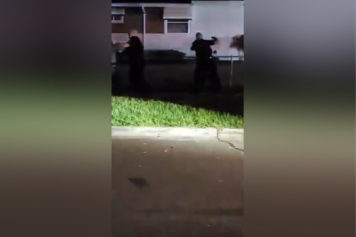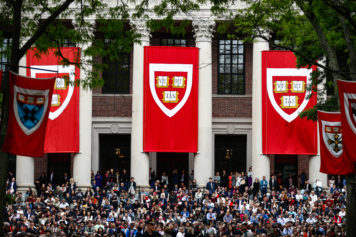Supreme Court Justice Antonin Scalia is drawing heat for his use of the term “the Blacks” during yesterday’s court arguments on affirmative action—language that Rev. Al Sharpton blasted as “tone-deaf” last night during his MSNBC show.
“Is this the kind of tone-deaf language we should be hearing in the nation’s highest court in the year 2013?” Sharpton asked on Politics Nation.
The Scalia comment came during arguments before the court to determine whether the ban on affirmative action that Michigan voters approved in 2006 is a violation of the U.S. Constitution.
The Michigan case is not a clear-cut consideration of the merits of affirmative action; rather it is a somewhat murky legal skirmish between defenders of affirmative action and the Michigan attorney general, who must defend the ban passed by voters seven years ago. But each case that goes before the ultra-conservative Roberts court sends the policy of affirmative action closer to its deathbed.
During the arguments, Chief Justice John G. Roberts Jr. wanted the plaintiffs to address whether some minority students actually suffered a disadvantage by being admitted into academic settings where they could not thrive. He pointed out research supporting this contention provided to the court in a brief by Richard Sander and Stuart Taylor Jr., who argue in their “mismatch theory” that Black students accepted to schools to which they are not qualified usually get much lower grades, rank toward the bottom of the class, and far more often drop out.
“Do we have to assume in your favor that these definitely are beneficial to particular minority groups?” Roberts asked, referring to race-conscious admissions plans.
His question was answered by Shanta Driver, a lawyer for the Coalition to Defend Affirmative Action, Integration and Immigrant Rights and Fight for Equality By Any Means Necessary.
“Certainly the minority voters of Michigan believe them to be, because 90 percent of Black voters in Michigan voted against” the ballot measure there, she said.
“If you look at the law schools, the medical schools, the professional schools now in the state of Michigan, there’s been a precipitous drop in underrepresented minority enrollment in those schools,” she continued. “We are going back to the resegregation of those schools because of the elimination of affirmative action.”
In addition, she said, the Michigan measure is unconstitutional because it fails “to protect minority rights against a white majority.”
But that final statement got a rise out of Scalia.
“My goodness,” he said, “I thought we’ve held that the 14th Amendment protects all races. I mean, that was the argument in the early years, that it protected the Blacks. But I thought we rejected that.”
Scalia is the same man who described the protection of voting rights for African-Americans in the Voting Rights Act as a “racial entitlement” during February arguments before the court.
If words mean anything—and frankly every court argument and deliberation is all about words—one would have to believe that a Supreme Court justice using the expression “the Blacks” to refer to African- Americans does not bode well for African-Americans seeking unbiased treatment from the court.


